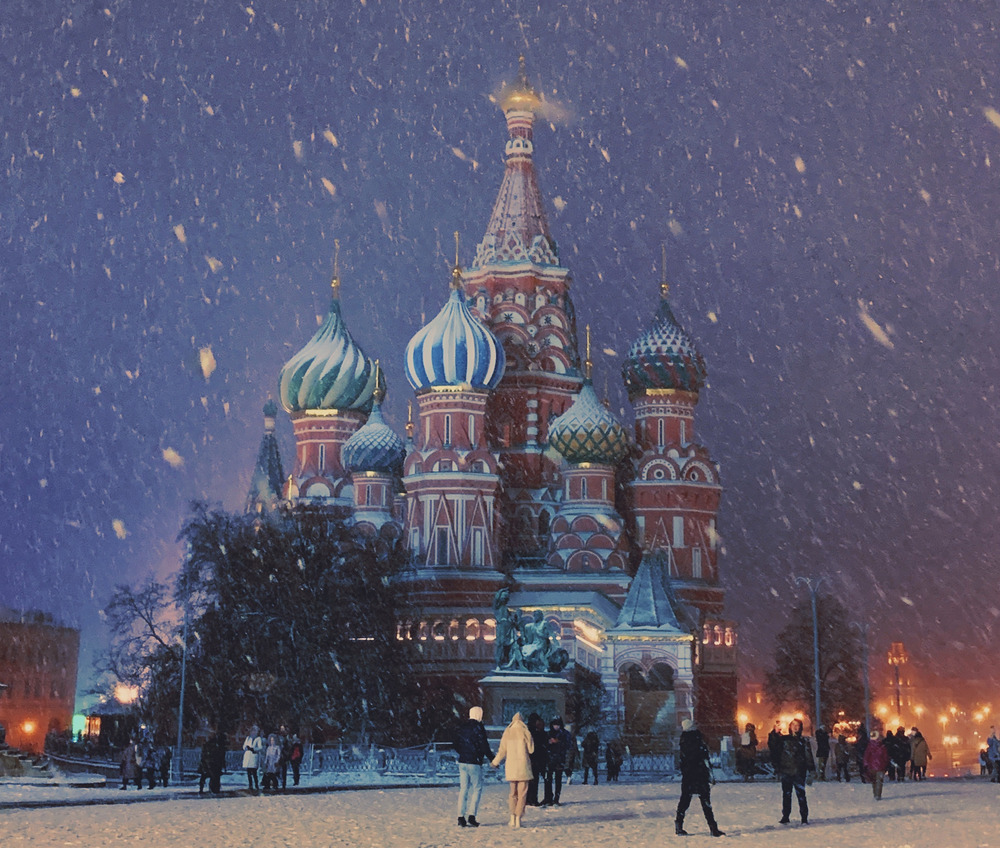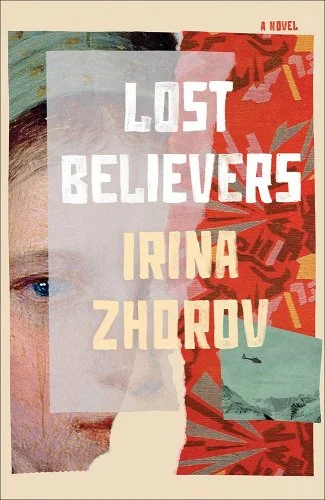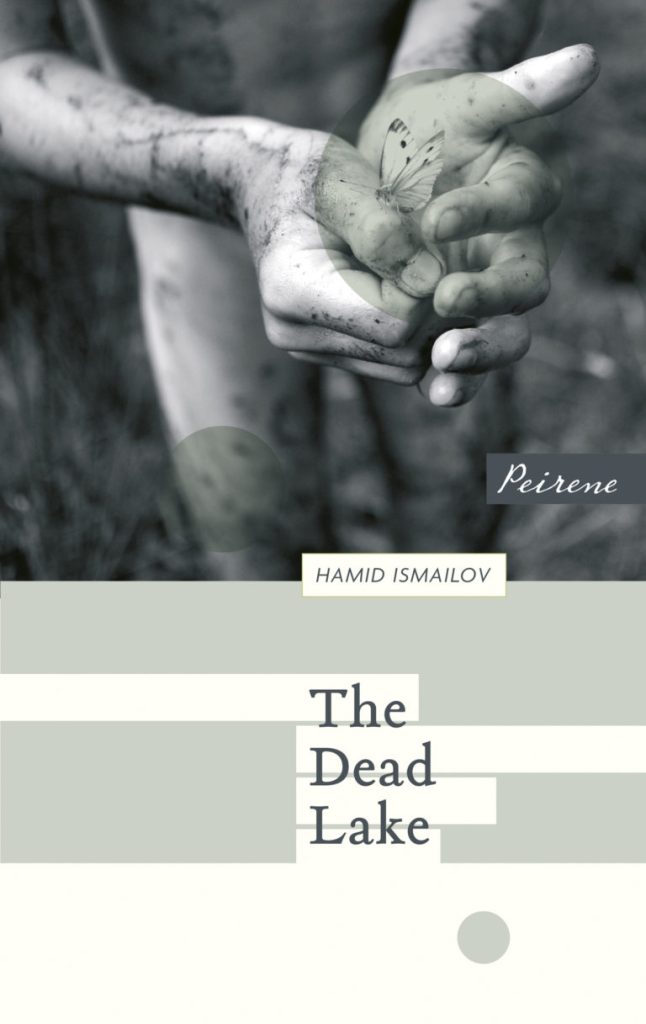There’s something strange about being from a place that no longer exists. The Soviet Union lasted nearly 70 years; it transformed regional as well as global politics, redrew myriad national borders, killed millions of its own people, seeded widespread cultural chaos and then…Poof! In 1991, it dissolved. People who lived in the Soviet Union suddenly lived in entirely independent countries, many of which freely reasserted their national identities for the first time in decades. But though the Soviet Union went away, its legacy has been complicated—it left its mark psychologically on people, on the landscape, on ethnic and national identities, on economies, on, basically, everything.
I’m from the Soviet Union, I left on the eve of its dissolution, as a child, and have led a Soviet-free life for three decades. And yet my first novel, Lost Believers, is still set there. In other words, I’m still processing. The book follows a geologist, Galina, exploring for iron ore in Soviet Siberia. Instead, she stumbles on a family of Old Believer Christians who fled persecution into the taiga decades prior. As a friendship blossoms between the two groups, it also sets off an unraveling of their respective lives and ideals.
Many, many other books have been written by people who are also processing, in one way or another, their experience of the USSR and life after it. Lately, the “after” is what interests me, whether it be a reckoning, an aftershock, the experience of living in its wreckage or something in between. This list of books is largely by authors who were born in the Soviet Union but tell stories from a post-Soviet place, temporally and geographically.
Secondhand Time: The Last of the Soviets by Svetlana Alexievich, translated by Bela Shayevich
If ‘post-Soviet stuff’ is a genre you’re interested in exploring, I suggest starting with this nonfiction book. It’s a compilation of interviews that Belarusian author Svetlana Alexievich weaves into a narrative about the dissolution of the USSR and what those who lived through it make of the rubble. Each voice—from doctors, soldiers, writers and everyone in between—tells a personal story but as a chorus they intone a hopelessness, some nostalgia and the singular ordeal of having lived under the Soviet flag.
Grey Bees by Andrey Kurkov, translated by Boris Dralyuk
Sergey Sergeyich is a beekeeper living in a conflict zone in the Donbas region of Ukraine, where electricity has been off for years but shelling is relentless. When he decides to flee his home with his bees, he ends up in another conflict area, in Crimea. Along the way, he gets an education on Russian aggression, ethnic persecution and the cruelties of human nature. Russian violence in Ukraine has been a post-Soviet constant and this novel shows its effects on just a few lives.
A Terrible Country by Keith Gessen
Andrei Kaplan, an American-raised Russian immigrant, returns to his birth city of Moscow to take care of his grandmother and find himself. As he settles in, he explores a city vastly changed but still captivating, and befriends young communists and hockey players. It’s an exploration of modern Russia, with her cruelty and capitalism, told by a character and an author grappling with the hold the place has on them.
Reasons for Living by Dmitry Bakin, translated by Andrew Bromfield
Reasons for Living is a story collection set in Russia, published soon after the collapse of the Soviet Union. The characters are largely unlikeable, the worlds can be disorienting (think Gabriel García Márquez, but darker), and the storylines are brutal, so of course it’s riveting. It’s also, sadly, the only English language writing available by this author, who was a reluctant writer and passed away in 2015.
Three Apples Fell from the Sky by Narine Abgaryan, translated by Lisa C. Hayden
Set in a mountaintop village in Armenia, this novel opens with 58-year old Anatolia laying in her bed preparing to die. But as death fails to come, the story opens to reveal what brought Antonia there, introduces her suitor and the remote area’s other residents. More than anything, it’s a portrait of an isolated but magical place, about the beauty of community and what it means to have hope. Written by Armenian author Narine Abgaryan, the story is delightfully out of time—though mention of past unnamed wars and famines hint at Soviet traumas—and the only truly joyful book on this list!
Oblivion by Sergei Lebedev, translated by Antonina W. Bouis
A young Russian man sets out on a journey to uncover who his guarded caretaker, who he calls Grandfather II, really was and in the process encounters the horrors of the Soviet gulag system. His discoveries leave him—and the reader—emotionally wrecked. It’s a devastating book that feels particularly poignant as the modern Russian government continues to suppress the history of the gulags.
The Dead Lake by Hamid Ismailov, translated by Andrew Bromfield
Set in the steppes of northeast Kazakhstan, where the Soviet Union once tested its nuclear weapons, this novella follows a man who as a boy swam in the site’s wastewater and never grew out of his child body. It’s a poetic look at the environmental devastation left by the Soviet Union in just one of its republics. It’s written by Hamid Ismailov, an author from yet another Soviet republic, Uzbekistan, whose work was banned in the country.
The Possessed by Elif Batuman
The Possessed is a nonfiction book about studying the Russian classics—books written in the pre-Soviet era—with many of the essays taking place as author Elif Batuman travels in post-Soviet republics, like Russia and Uzbekistan, to report on the people who love them. Batuman is the only non-Soviet born author on this list, but her observations on the absurdities of post-Soviet life, on the people who continue to love Tolstoy, Dostoyevsky, Babel, Pushkin, and the others, on the Uzbek lexicon and watermelons, and many things in between, are funny and sharp and will make you want to read and re-read books from the region with an ear attuned to the strange history of the place.



